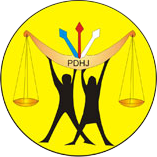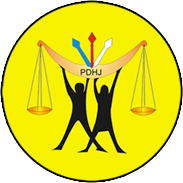Alongside preventing violation and responding to complaints, the Ombudsman puts a major emphasis on the role of education and training in improving standards of governance and fostering a positive environment where rule of law and good governance are well understood and respected by every member of the Timorese community.
Education and training programs target both vulnerable groups who need to be aware of their rights and the complaints process as well as those working in state institutions who need to be informed about human rights and good governance principles in order to carry out their roles in a compliant way.
To date, programs have been provided to government staff/public service, the police, the military, schools, health authorities, local government administrators, community leaders/groups, women’s groups, journalists, students/youth and local communities at district and village level.
The main mechanism for delivering information about the Ombudsman at community level is through the Ombudsman’s ‘Socialisation’ program, which involves a small team of staff from the regional office preparing and delivering a full-day interactive information workshop to invited participants. These are carried out throughout the year. The Ombudsman’s Strategic Plan 2011-2020 notes that at least 80 socialisation sessions need to be held each year. Socialisation Activities are coordinate by the Ombudsman’s special communications working group.
The Ombudsman also undertakes a number of workshops each year whose purpose is to inform specific target groups about certain relevant human rights or good governance issues. Previous workshops have been held on topics such as workers’ rights, LGBT issues and women’s rights issues. The Ombudsman, as mentioned in its strategic plan, recognises the importance of ensuring that vulnerable groups such as women, children, religious minorities and people living with disabilities can access the services of the institution and to this undertakes these workshops to inform people of how the Ombudsman can help them if they feel that their rights have been violated.
Ombudsman staff are trained and supported to provide both effective and relevant information as well as to work using participatory training methods that empower and connect with locals and the context in which they will use the information being received. Concrete examples and situations are discussed and, where possible, local languages are used.
The media is another key partner in this work and the Ombudsman has agreements with print, television and radio outlets at national and local levels (where they exist) to disseminate pre-prepared programs and live debates on topics relating to human rights and good governance. These programs are well received by local communities. The Ombudsman also uses media releases and interviews as a way of sharing new or changing information with the community on important issues.
The number of complaints that that fall within the mandate of the Ombudsman has also increased each year. These statistics point to a successful promotion and education program.
If you would like the Ombudsman to visit your community and hold a socialisation session contact us.
This post is also available in: TetunPortuguese (Portugal)





